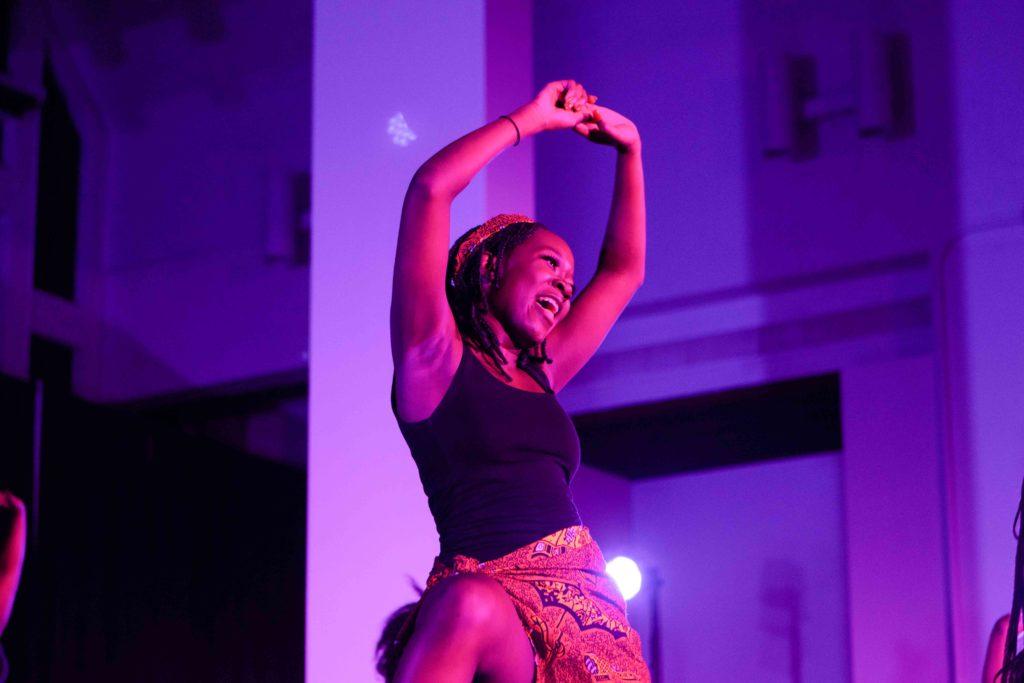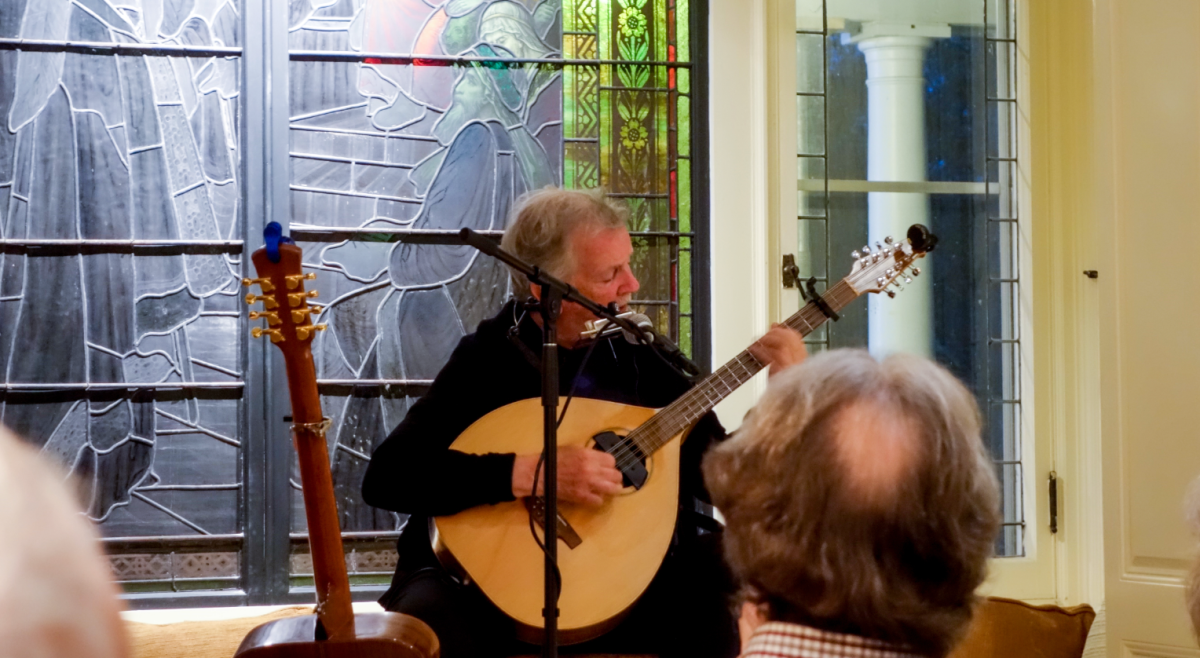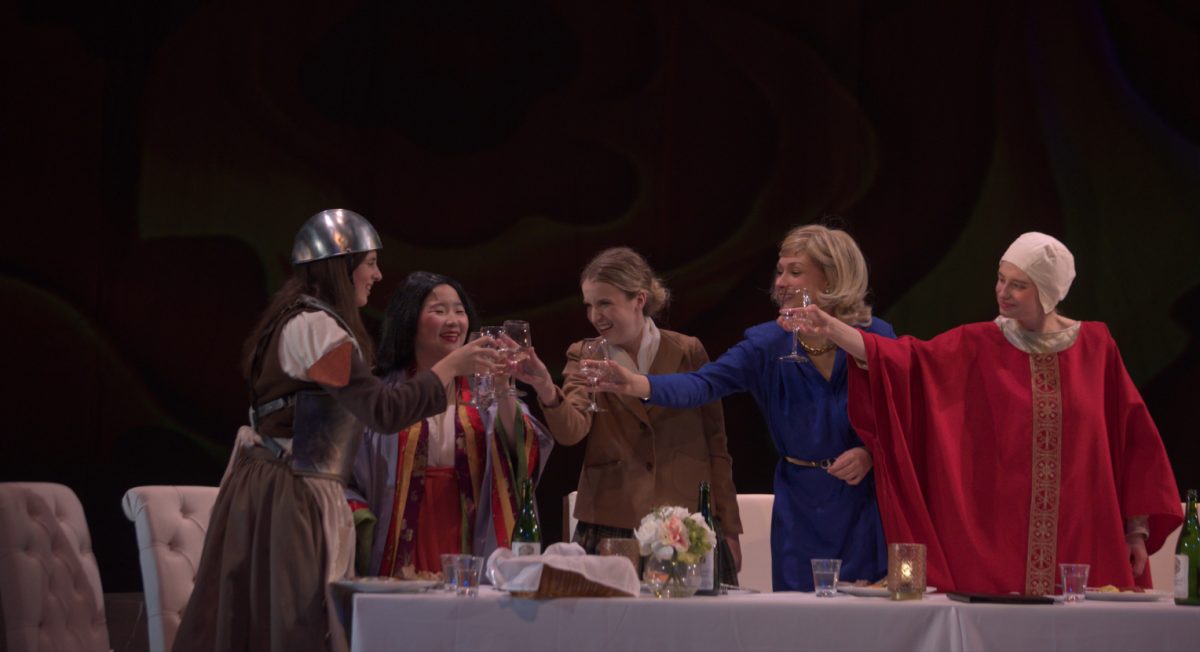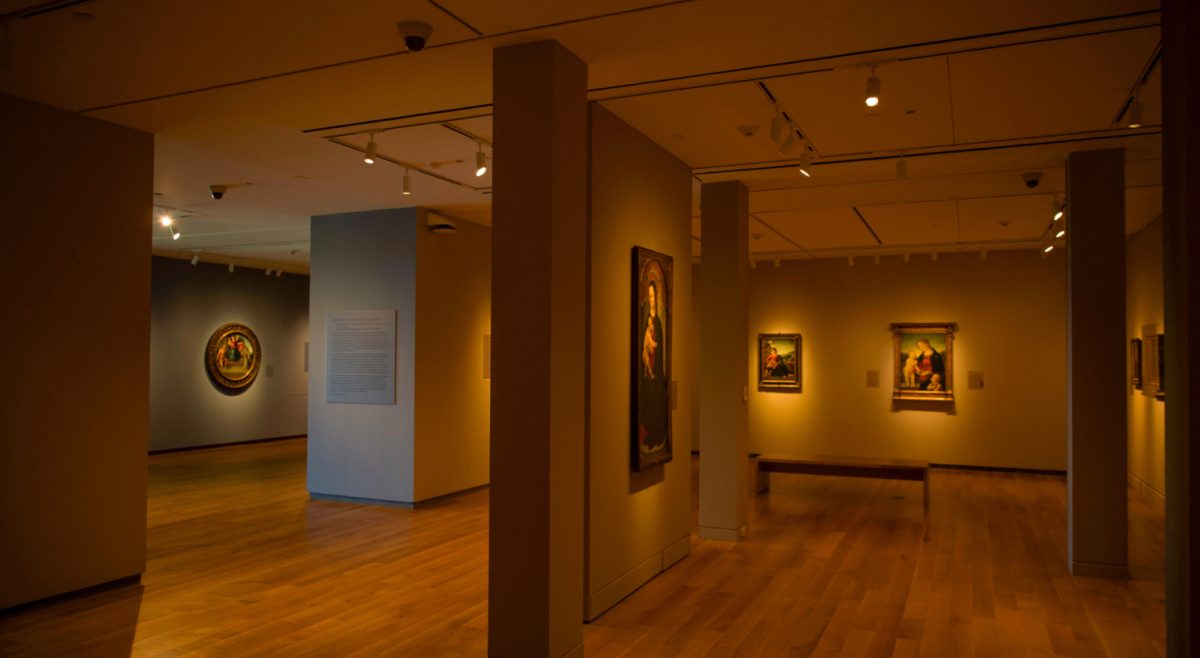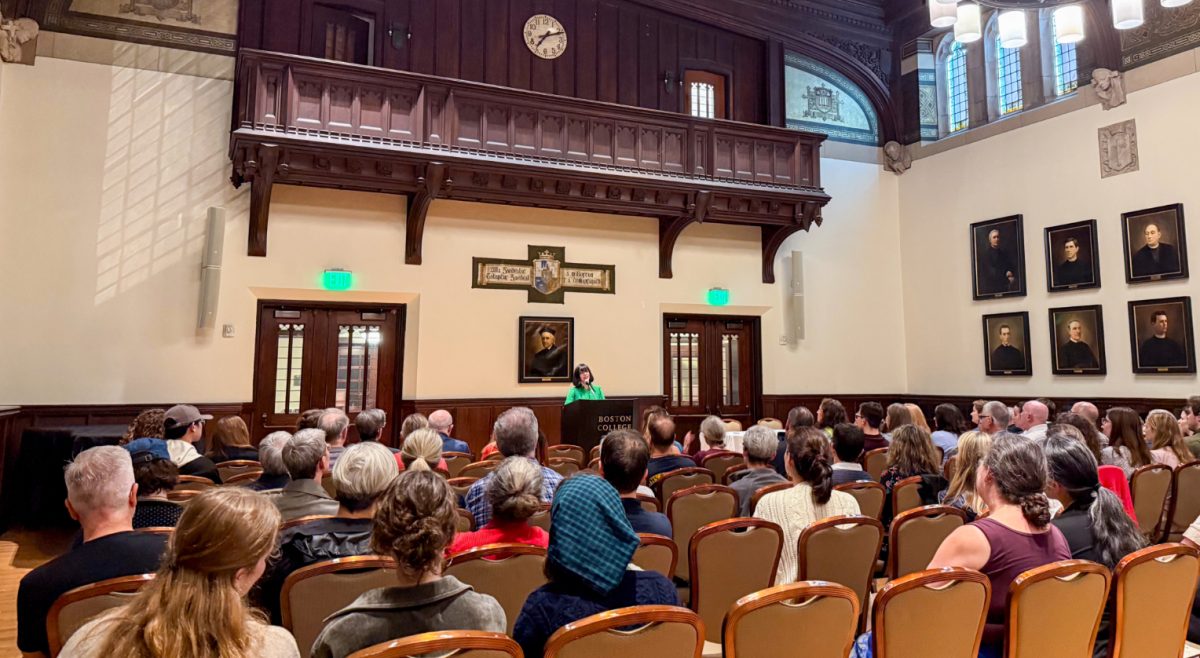What is dance without purpose? Every aspect of Diaspora Through Dance, a competition jointly organized by Presenting Africa To You (PATU) and the Campus Activities Board (CAB), was intentional in showcasing the dance cultures of the African Diaspora.
Since its inception in 1995, on-campus dance group PATU has aimed to share the cultures of the global diaspora with Boston College and the greater Boston community. Saturday’s competition did just that. Other Boston-area college dance teams joined PATU and all-female step team Females Incorporating Sisterhood Through Step (F.I.S.T.S.) for an evening of dance that spanned genres and continents.
The first competing team, Trxbe, hails from Suffolk University. Its set started off with six dancers crowned in afros, dancing in sync to upbeat, woodwind-heavy music. As the music transitioned, more team members hopped onto stage from the wings, and they then carried out routines to Sho Madjozi’s “John Cena” and Mr. Vegas’ “Party Tun Up.”
Members of PATU returned to the stage, some casually boasting, “West Coast best coast,” which summoned friendly retorts from PATU members of East African descent. They argued that with Somalia being on the “horn of Africa,” with the longest coastline in continental Africa, Uganda being the “pearl of Africa,” and Ethiopia being a coffee supplier of Africa, it should have been evident that no one “beats the East [Coast].”
This skit segued into the first performance by Boston University’s Eritrean and Ethiopian Students Association. The group graced the stage to perform a modern take on traditional Ethiopian dance. Wearing traditional white habesha kemis dresses and other Ethiopian garments, the team performed a routine that featured rolling and bouncing shoulders. They closed out the dance with a display of the Ethiopian lion of Judah and national Eritrean flags.
The next competing team, Sakata Afrique from Massachusetts Institute of Technology (MIT), performed a set to “Causing Trouble” by DJ Tunez and “Sensei” by Congolese-British artist ZieZie. They bridged the diaspora not only through music and dance, but also through fashion—sporting color-blocked windbreakers, the team incorporated hip-hop moves into its routine set to Beyoncé’s “My Power.”
The Riddim Dance Troupe from Northeastern University grooved sensually and energetically to Caribbean songs “Oil It” by Mr. Killa and “Body Good” by Shenseea. Small in number but mighty, the Riddim Dance Troupe also integrated moves that mimicked miming.
Transitioning into the Caribbean side of the diaspora, a handful of Haitian-American BC students performed kompa, a national music and dance style from Haiti. Three pairs of kompa dancers slow-danced to Afro-francophone music, including “Palavra” by Tayc, and were complemented by smoothly changing lights of various colors.
Boston University’s Afrithms was the last team to compete. Eleven women effortlessly executed South Africa’s “Gwara Gwara” dance. Their set featured recent, popular Afrobeat hits “Anybody” by Grammy-nominated Burna Boy, and “Simon Says” by Megan Thee Stallion. They stunned the crowd with a death drop finale.
The show also featured a performance from BC’s F.I.S.T.S. team. Members of PATU explained how step is an important art form because it has a long history in African and African-American communities.
PATU then concluded the show with its own performances, delivering nothing shy of animated, sharp, and grand dance moves. This year marks PATU’s 24th year on campus. To celebrate, the team brought back two PATU alumni as judges for the competition—Vanessa Medor, BC ’17, and Cimron C. Charles, BC ’16. The third judge was Régine Michelle Jean-Charles, professor of romance languages and literatures and African and African Diaspora Studies.
All-female Boston University team Afrithms was crowned the winner. Diaspora Through Dance was so much more than a competition, though. It was a powerful display of the rich cultural traditions of Africans across the globe, and a meaningful experience for the audience.
Featured Images by Leo Wang / For the Heights

